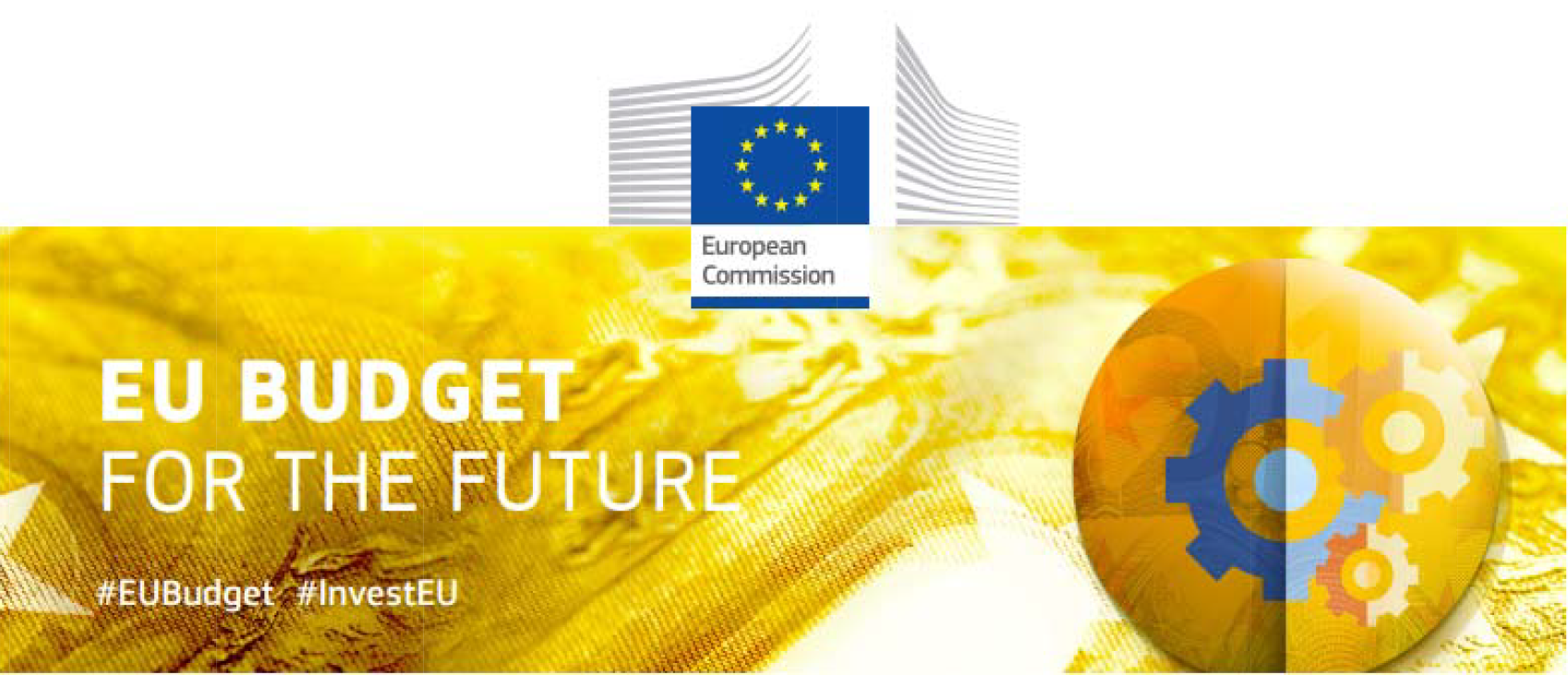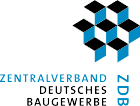The InvestEU Programme will succeed the Investment Plan for Europe, known as the "Juncker Plan". With InvestEU the European Commission aims at boosting investment, innovation and job creation triggering at least €650 billion in additional investment. The programme will consist of three elements: the InvestEU Fund, destined to mobilise public and private investment by using guarantees from the EU budget, the InvestEU Advisory Hub, which should provide technical advice to investment projects seeking financing and the InvestEU Portal which brings together projects and investors. The programme will run between 2021 and 2027.
The programme has been approved by the European Parliament and the Council of the EU. The concrete figures however, will be determined by the European Council.
Why FIEC is dealing with this topic
InvestEU will support investments in four policy areas, all in a way related to the construction sector, with a budgetary guarantee of at least €38 billion according to the European Commission's proposal:
- €11,5 billion are dedicated to sustainable infrastructure including transport;
- €11,25 will serve investments into research, innovation and digitisation;
- €11,25 are foreseen to facilitate the access to finance for SMEs and
- €4 billion should support social investment and skills including social housing.

Actions and key dates
08/06/2018 – European Commission's proposal
18/04/2019 – Agreement between the European Parliament and the Council
2nd half 2020? – Agreement on the overall EU budget
The European Committee for Standardisation (CEN) set up a new Technical Committee on "integrity and accountability in public procurement" (TC 461). The objective is to provide guidance or requirements for how organisations ensure integrity, accountability and transparency in public procurement acitivites and processes.
There will be a special focus on corruption, fraud and conflict of interests, but the work will most probably be extended to further aspects. Indeed, in the framework of its activities, it is foreseen that TC 461 also considers the need to expand the scope of its work to topics such as terms and definitions, general concepts, best practices, guidelines for the procurement process, checklists and other guidelines of relevance.
Why FIEC is dealing with this topic
These topics are of high relevance for the construction sector. The future definitions and concepts as such will have no direct link with the existing EU legislation (i.e. 2014 EU public procurement directives), but might become a standard in the Member States. At the same time, it can be an opportunity for FIEC to pass on some messages which have not been integrated in the existing EU legislation. Therefore two experts have been nominated on behalf of FIEC in order to get involved at EU level in this Technical Committee.
It is also important that all the Member Federations get involved at their national level (i.e. in the mirror committee of the CEN/TC 461 within their national standardisation body).
Actions and key dates
06/2019 – 1st meeting of the CEN/TC 461
10/2019 – 1st meeting of the Working Group 1 (in charge of draft standard)
03/2020 – 1st draft of the standard available (tbc)
In May 2017 the European Commission issued a proposal for amending the Eurovignette Directive (1999/62/EC) on the charging of heavy goods vehicles (HVGs) for the use of certain infrastructures. The legislative text does not require Member States to levy charges on their road network. However, in case if Member States introduce user charges, they have to respect the provisions of the Directive. The main objective of the recent proposal, which substantially amends the existing legislation by extending the scope of vehicles covered (now, passenger cars are included), is to make progress with regard to the "user pays" principle.
Why FIEC is dealing with this topic
FIEC deals with the Directive with regard to the financing of infrastructure maintenance. Since the economic crisis, public spending on road maintenance has decreased significantly which leads to a number of negative economic, social and environmental consequences. It is assumed that maintenance expenditure is more resilient to governmental budget changes when being linked to such sources of funding instead of direct government spending. Therefore, FIEC calls for a mandatory earmarking of the revenues generated by charging the users for the development of sustainable transport infrastructure. Also, FIEC is in favour of greater transparency as regards the use of tolls and user charges levied.
Actions and key dates
31/05/2017 – Commission's legislative proposal
27/11/2017 – FIEC position paper
02/05/2018 – FIEC issues voting recommendations to the TRAN Committee
25/10/2018 – European Parliament adopts its position which is in line with FIEC's recommendations
17/09/2019 – Finnish EU Presidency aiming for a common position
31/10/2019 – Finnish EU Presidency tables a 2nd draft compromise for a common position
28/02/2020 – Croatian EU Presidency tables a revised compromise text
As the 2014 Public Procurement Directives include provisions on the development of electronic procurement, the European Commission has set up an Expert Group on Electronic Procurement (EXEP), in order to facilitate the implementation of these rules at national level. It gathers mainly representatives of national administrations of the EU member states who exchange information about their respective national situations and get assistance, advice and recommendations from the European Commission on how to proceed with the various aspects of digitalisation in public procurement.
FIEC managed to get a seat in this experts' group that meets twice a year.
Furthermore, FIEC is an observer to the newly created subgroup on eCertis. eCertis is an online database listing the eligibility criteria and documentary evidence needed in each Member State to take part in public procurement.
Why FIEC is dealing with this topic
Private economic operators have a crucial role to play in helping national administrations to make the transition towards electronic procurement as companies are among the end users of public procurement tools.
Amongst others, FIEC contributed to the work on interoperability matters, accreditation of platforms, implementation of the Electronic Single Procurement Document (ESPD); and intervenes on a regular basis to present the views and needs of the construction industry in this field.
Actions and key dates
2014 – Setup of the European Commission Expert Group on eProcurement (EXEP)
05/2019 – EXEP meeting, Brussels
11/2019 – EXEP meeting, Brussels
18/02/2020 – 1st meeting of the subgroup on eCertis
The Basel Committee on Banking Supervision (BOBS) is the primary global standard setter for the prudential regulation of banks and provides a forum for cooperation on banking supervisory matters. Its mandate is to strengthen the regulation, supervision and practices of banks worldwide with the purpose of enhancing financial stability. The full set: of the standards agreed by the BOBS is known as the "Basel framework". The standards set out a system based on three "pillars":
1) minimum capital and liquidity requirements,
2) a supervisory review process aimed at ensuring that banks have adequate capital and liquidity to support all the risks in their business but also to encourage banks to develop and use better risk management techniques in monitoring and managing their risks and disclosure requirements that seek to provide market participants with sufficient information to assess a bank's material risks and
3) capital adequacy and thus to encourage market discipline by banks.
The original set of standards was agreed in 1998. It was reviewed in 2004. As a reaction to the financial crisis the BOBS review the standards for the second time. The result is known Basel III framework. In December 2017, the Basel III reforms were finalised. Now, they need to be implemented at EU level which requires amending existing legislation.
Why FIEC is dealing with this topic
Like the whole European economy the construction sector heavily relies on banks for corporate financing, project financing and loans for real estate activities. In general terms, to meet the increased capital requirements that will be triggered by the reforms, banks will need to adjust their balance sheets either by reducing the size of their assets or by raising additional capital of which the costs could be passed on to the price of their financing. Due to the significance of the construction industry for domestic growth, a deterioration of its financing conditions would go hand-in-hand with adverse socio-economic effects.
More precisely, FIEC regards the implementation of Basel III from three angles mainly: financing of real estate activities, financing of SMEs and project financing.
FIEC argues that there is not a one-size-fits-all approach when it comes to the implementation of the Basel agreement. Being an international agreement, it is build on a compromise that neglects some of the specificities of the financing of the EU economy which is for instance different from the US model. For instance, the EU economy relies to a larger extent on financing by banks than the US economy where the capital markets play a predominant role for corporate financing. According to our estimates, a one-to-one implementation of the Basel III standards would result in the loss of at least 170.000 jobs in construction at European level. Strong European banks and favourable financing conditions are not only a cornerstone for the construction industry but for domestic growth in the EU in general.
Actions and key dates
December 2017 – finalisation of Basel III reforms
10/2019 - 01/2019 – FIEC participation in public consultation
Q2/2020 – European Commission's legislative proposal implementing Basel III
01/2022 – Basel reforms implementation deadline
Since early 2018, FIEC has focused on the crucial issue of the maintenance of transport infrastructure. The economic crisis led to enormous spending cuts although the European post¬war infrastructure, especially bridges, is ageing. Indeed, the maintenance backlog, i.e. the amount of maintenance and rehabilitation that should have been completed in order to maintain roads in a good condition but has been deferred, is growing considerably. Yet, delayed maintenance results in wider costs: it impedes mobility in the internal market, increases the risk of accidents and leads to higher CO2 emissions through the transport sector. Furthermore, "savings" from delaying maintenance will be false economies as the infrastructure will degrade to the point where it must be replaced which is costly in comparison to ongoing maintenance. However, maintenance of infrastructure is mostly a Member States' competency and few is done at national level to remedy the problem.
Why FIEC is dealing with this topic
Infrastructure maintenance is an important source of income for the sector. Regular maintenance of infrastructure would mean continuous activity for the construction industry. At European level, several legislative files also relate to infrastructure maintenance. Regarding financing, FIEC advocates that part of EU funds that are dedicated to transport infrastructure should also cover the needs for maintenance such as the Connecting Europe Facility or InvestEU. In a similar vein, FIEC urges for a mandatory earmarking principle with regard to the Eurovignette Directive in order to allocate the revenues generated by tolls to sustainable infrastructure. FIEC also called for an ambitious revision of the Road Infrastructure Safety Management Directive to better target investment in infrastructure on the basis of safety assessments. Regrettably, the Directives only foresees visual inspections of the surface while structural health is excluded from its scope.
Furthermore, FIEC is looking into the establishment of an informal network of European associations dedicated to the promotion of the topic.
FIEC is also active as regards the safety and maintenance of bridges in particular. The relevance of bridges in the transport network is enormous. Closures due to exceptional maintenance works result in considerable economic, social and environmental consequences. The collapse of the Morandi bridge in Genoa in 2018 also illustrated that lives are at stake when bridges are not properly maintained. FIEC promotes the idea of a handbook for bridges that will in the end better identify safety and maintenance needs and thereby targeting investments.
Actions and key dates
23/04/2018 – FIEC meeting on infrastructure maintenance
12/06/2018 – Meeting with DG Move
25/09/2018 – Event on infrastructure maintenance within the European Parliament's intergroup on long-term investment, co-organised by FIEC
26/03/2019 – FIEC meeting on infrastructure maintenance
29/03/2019 – Meeting with DG Move and DG Grow
24/09/2019 – Meeting with DG Move
05/11/2019 – Meeting with DG Move and DG Grow
18/11/2019 – Meeting with European associations
03/2019 – FIEC contributes to European Commission's Study for the evaluation of the 2011 Transport White Paper
(?)06/2021 – Conference on Bridge Safety in Strasbourg
In 2012, the European Commission issued a proposal for a Regulation on the access of third-country goods and services to the Union's internal market in public procurement and procedures supporting negotiations on access of Union goods and services to the public procurement markets of third countries - also known as International Procurement Instrument (IPI). The main aim consisted in increasing the EU's leverage in negotiations in order to achieve reciprocity as regards the access of European companies to foreign procurement markets. Basically, where a third country not being member to the VVTO Government Procurement Agreement (GPA) restricts the market access for European companies, economies operators from the concerned country could be subject to restrictive measures taken by the European Commission. As there was not a majority in support of the proposal in the Council of the EU, the European Commission presented an amended proposal in 2016. The new proposal clearly weakens the instrument. It limits potential restrictive measures to price penalties and would prohibit national contracting authorities from excluding tenders from non-GPA members from their bidding procedures. The legislative file has been at a standstill in the last years since the Council could not agree on a common approach. However, the Council recently resumed its work on the file.
Why FIEC is dealing with this topic
FIEC treats this issue in cooperation with the European International Contractors (EIC) and the European Dredging Association (EuDA). Dealing with internal market issues, FIEC considers the IPI as a vehicle to prevent unfair competition on the internal market while our partners are addressing the external challenges. In the last years, we observe a growing number of huge infrastructure projects being awarded to Chinese State-owned enterprises (SOEs) submitting extremely low prices against which private European companies cannot compete. FIEC is mostly concerned by the fact that the IPI proposal as it stands now, would completely open the EU procurement market to third country bidders while undermining provisions of existing public procurement legislation. Therefore, FIEC advocates for several modifications of the proposal. Most importantly, it must be assured that the IPI comes as a complement to existing legislation and does not overrule it.
Ensuring a level playing field on the internal market also requires actions going beyond the IPI. For instance, EU Anti-Dumping Regulations should apply to services as well, not only to goods. Furthermore, FIEC pledges for a State Aid Test to be conducted when third country companies want to participate in tendering procedures. Also, since there is no legal definition of abnormally low tenders (ALT), FIEC demands that a check-triggering mechanism should be established in order to limit the room for manoeuvre of contracting authorities when dealing with such tenders. In a similar vein, the price must not be the only criterion when determining the most economically advantageous tender (MEAT).
Actions and key dates
21/03/2012 – European Commission issues IPI proposal
29/01/2016 – European Commission issues amended IPI Proposal
12/06/2019 – FIEC/EIC/EuDA Action Plan
17/09/2019 – FIEC/EIC/EuDA position paper on Fostering a Level Playing Field in Construction Services
11/2019 – FIEC meets parliamentary assistant of MEP Daniel Caspary (EPP), Rapporteur on the IPI in the Trade Commmittee
01/2020 – FIEC meets MEP Inmaculada Rodriguez-Pinero (S&D), Shadow-Rapporteur on the IPI in the Trade Committee
02/2020 – FIEC meets parliamentary assistant of MEP Liesje Schreinemacher (RENEW}, Shadow-Rapporteur on the IPI in the Trade Committee
03/2020 – FIEC contributes to BusinessEurope's Position Paper
In February 2011, the EU adopted Directive 2011/7/EU on combating late payment in commercial transactions. The background of the Directive is that most goods and services are supplied on a deferred basis, i.e. the supplier gives the client time to pay the invoice. Although the goods are delivered and the services performed, many corresponding invoices are paid well after the deadline which negatively affects the liquidity and complicates the financial management of undertakings. Many SMEs go even bankrupt due to late payment. One of the main elements of the Directive is to entitle creditors to interests for late payments. Furthermore, the Directive addresses the length of payment terms with the aim of preventing the abuse of contractual freedom to the detriment of the creditor. As late payment is an issue in both business-to-business and public authority to businesses relations, both kinds of entities are targeted by the legislation. Regarding public authorities, slightly different rules are applied since they benefit from more secure, predictable and continuous revenue streams than companies and obtain financing at more attractive conditions.
The Directive was to be transposed into national law by March 2013. Since then, several assessments have been carried out revealing that the impact of the Directive has been limited so far. The issue of late payment figures in the European Commission's SME Strategy from March 2020. According to this document, the Commission will support the Member States in enforcing the Directive by setting up monitoring and better enforcement tools and exploring the feasibility of alternative resolution/mediation mechanisms for SMEs.
Why FIEC is dealing with this topic
The construction sector is particularly affected by late payments, mostly due to its value chain characteristics and its high level of conflictuality.
Construction companies are particularly vulnerable to late payment as they usually have the obligation to perform the construction at their own expenses (material., machinery, personnel) before getting paid. The low profit margins in the sector are aggravating the problem and make companies vulnerable to cash flow difficulties. Late payment can thus endanger the mere existence of a construction company. A positive cash flow is essential to ensure the daily functioning of the company, expand, invest and embark on new projects.
Especially SMEs are affected by late payments but also large contractors suffer from late payment by its private or public clients. In fact, public authorities often pay later than private actors. It is thus among FIEC's core priorities to make public authorities subject to stricter rules. They often have a dominant market position and fix the purchasing conditions. Late payment by public authorities triggers a "snowball effect" for the entire value chain to the detriment of main contractors and subcontractors. Moreover, lengthy verification periods cause problems to the sector as they come in addition to the payment period and are often used to artificially delay the payment.
Actions and key dates
16/02/2011 – Adoption of the Directive
16/03/2013 – Deadline for the transposition into national law
26/08/2016 – Report on the implementation of the Directive
06/2018 – European Commission's Study on business-to-business transactions
01/2019 – FIEC participates in informal consultation
01/2019 – European Parliament Own-Initiative Report
13/03/2019 – European Commission's Presentation at the ECO PLEN Meeting
21/10/2019 – European Commission's Reflection Day on Late Payment
03/2020 – FIEC contributes to the European Commission's Report on Late Payment in the Construction Sector
The current legislative framework setting the rules for public procurement consists of the 3 directives adopted in 2014 (2014/23/EU on concessions, 2014/24/EU on "classic!" procurement and 2014/25/EU on "utilities" procurement). These rules aim at ensuring that public procurement procedures are transparent and fair.
In October 2017, the European Commission published a package of mostly soft law measures (guidance) aimed at helping with the implementation of the directives. It promoted the "strategic use" of public procurement (i.e. using innovative, green, social / societal criteria), as well as the professionalisation of public procurers (i.e. capacity building).
Several recent strategies published by the new Commission foresee a great deal of initiatives regarding public procurement. The Commission envisages to propose further legislation and guidance to green public procurement. Importantly, it will come up with minimum mandatory green criteria for public procurement in sectoral initiatives, EU¬funding or product-specific regulation, i.e. set a common definition of what a green purchase is. Moreover, the Commission will propose a Sustainable Procurement Screening Instrument ensuring the greening of public infrastructure projects. Also, it is foreseen to use level(s) to integrated life cycle assessment in public procurement. With regard to SMEs, the European Commission will call on contracting authorities to use the flexibility offered by the procurement framework and launch a "SME friendly" label for contracting authorities. These initiatives are all at the very beginning and the European Commission asks for any kind of input.
Why FIEC is dealing with this topic
This issue is crucial for construction companies because it represents a high share of business opportunities, especially when it comes to public works.
As regards to the guidance package published by the Commission in 2017, FIEC broadly welcomed these measures, especially the professionalisation of public buyers, but was more sceptical about the strong promotion of "strategic procurement" (i.e including innovative, green and social/societal criteria). These criteria are not clearly defined and sometimes diverge significantly from the traditional principle of purchasing for the best value for money, which can put at risk the level playing field between the various bidders.
FIEC is currently preparing input for the upcoming initiatives on public procurement.
Actions and key dates
2014 – Adoption of the public procurement Directives
10/2017 – European Commission's guidance package on public procurement
04/05/2018 – FIEC position paper on the 2017 package
03/10/2018 – European Parliament resolution on 2017 package (Plenary)
02/2020 – Sustainable Europe Investment Plan
03/2020 – Industrial Strategy
03/2020 – SME Strategy
03/2020 – New Circular Economy Action Plan
24/03/2020 – FIEC meeting with DG GROW on upcoming procurement initiatives
In order to honour the EU's commitments within the Paris Agreement from 2015, the European Commission set up an Action Plan on Sustainable Financing in March 2018. The latter compris¬es amongst others a Regulation on the establishment of a framework to facilitate sustainable investment also known as taxonomy. The latter is destined to address the investment gap as regards the achievement of the EU's sustainability goals. Different national approaches as to what can be labelled as environmentally sustainable as well as greenwashing impede cross-border investment flows. Hence, a common language/methodology about what can be consid¬ered as environmentally sustainable should be developed. The objective consists in creating uniform criteria to assess the degree of sustainability of economic activities in order to determine the degree of environmental sustainability of a financial product.
The taxonomy shall be used whenever a financial product is being labelled as environmentally sustainable. The Regulation foresees criteria based on which the degree of sustainability of an economic activity is assessed. In order to elaborate these specific criteria a Technical Expert Group (TEG) has been set up. The Commission's proposal also entails the establishment of a Platform on Sustainable Finance. It will take the form of a typical Commission expert Group and replace the TEG while having similar tasks, i.e. advising the European Commission on the spe¬cific criteria.
Why FIEC is dealing with this topic
The construction sector plays a prominent role in the most recent TEG report and will probably be targeted by future reports. Several construction activities having the potential to mitigate cli¬mate change are covered in this report: construction of transport infrastructure; construction of water projects; construction of new buildings; renovation of existing buildings; individual renova¬tion measures, installation of renewables on-site and professional, scientific and technical activi¬ties, acquisition of buildings.
Apart from its initial use for financial products, the taxonomy might be applied in future EU legis¬lation such as for the allocation of EU funds or in the public sector (cf. Sustainable Europe In¬vestment Plan). It was already called a "procurement plan for the future." Hence, the taxonomy might have a considerable impact on the financing/funding of companies themselves and of individual construction projects. The construction industry being a central element of the Tech¬nical Report and the future Taxonomy, efforts should be made to ensure an adequate represen¬tation of the construction industry in the Platform on Sustainable Finance. The current TEG is mostly composed of representatives from the financial sector while there is a low number of representatives from the real economy.

Actions and key dates
24/05/2018 – European Commission issues its proposal
28/03/2019 – Decision by Parliament on its position
18/06/2019 – TEG's Technical Report on the taxonomy
18/12/2019 – Interinstitutional Agreement
14/01/2020 – Sustainable Europe Investment Plan
02/2020 – FIEC meets DG FISMA
09/03/2020 – TEG's Final Technical Report on the taxonomy
12/03/2020 – Stakeholder Dialogue Meeting on Final TEG Reports
05-06/2020 – European Commission's Call for Experts for the Platform on Sustainable Finance
The Trans-European Transport Network (TEN-T) policy aims at removing bottlenecks, addressing missing links, improving interoperability among different transport modes and among regional and national transport infrastructure and integrating urban areas into the network. Initially created by the Treaty of Maastricht, its last revision was in 2013. The 2013 Regulation differentiates between a comprehensive and a core network - the former including remote areas, the latter containing corridors of "highest strategic importance". According to the Regulation, the core network should be completed by 2030 while the comprehensive network should be established in 2050. A review of the TEN-T guidelines is scheduled for 2021.
In order to foster investment in the TEN-T and to meet the policy's objective, a specific funding instrument, the Connecting Europe Facility (CEF), has been created in 2013. For the period 2014-2020, the CEF's total budget amounts to €29.9 billion of which €23.4 billion are dedicated to the transport sector. Of this amount, €11.3 billion is reserved for projects in Member States eligible for the Cohesion Fund. Since 2014, 763 projects have been supported with around €22.05 billion in EU funding.
Furthermore, the European Commission wants to speed up the completion of the TEN-T through the Regulation on streamlining measures for advancing the realisation of the trans-European transport network. It aims at creating a supportive regulatory environment and introducing efficient procedures since the implementation of TEN-T projects is affected by complex administrative procedures and regulatory uncertainty. The proposal is still under discussion in the Council.
Why FIEC is dealing with this topic
Investing in the TEN-T is not only an investment in transport infrastructure but is beneficial to the related industries such as the construction industry. The completion of the TEN-T is therefore key for our sector.
Regrettably, the CEF is currently strongly under financed. Most of the budget has already been used during the first two years. If the CEF transport budget does not increase in 2021-2027, the completion of the core network is at risk due to insufficient budget. In fact, the completion of the core network by 2030 requires more than €750 billion. FIEC strongly advocates for a larger budget for transport as well as for maintaining high co-financing rates. In order to be more vocal on this issue, FIEC is part of the campaign "More EU budget for transport — The best Investment Plan for Europe" since October 2017, which assembles several associations from the transport sector.
FIEC also participated in the consultations on the Regulation on streamlining measures and the 2013 TEN-T Regulation. FIEC pointed out that the TEN-T implementation is impeded by lengthy and burdensome permitting procedures and differences in public procurement practices. FIEC also argues that the network must not be about new infrastructure only but should include maintenance activities and the adaptation of infrastructure to new types vehicles.
Actions and key dates
09/2016 – FIEC participation in consultation on the Regulation on streamlining measures
10/2017 – FIEC joins the CEF campaign "More EU budget for transport"
21/09/2018 – FIEC position paper on CEF
07/2019 – FIEC participation in consultation on the 2013 TEN-T Regulation
mid-2020 – Results of the evaluation of the TEN-T Regulation
2021 – Proposal for the revision of the TEN-T Regulation
In May 2017, as part of the 1st mobility package, the European Commission proposed to revise the rules on certain social aspects in road transport (i.e. driving times and rests), linked to the use of (digital) tachographs on board of vehicles.
In principle, such burdensome and costly rules do not apply to construction companies’ drivers and light commercial vehicles.
However, in some countries, the legislation is applied more extensively and includes “construction drivers”, as though they belong to the transport industry.
Why FIEC is dealing with this topic
FIEC, in cooperation with EBC (European Builders Confederation), advocated for the extension of the existing exemptions to the mandatory use of tachograph on board of vehicles, because construction companies are small mobile factories covering a limited perimeter, rather than road transport companies. In specific cases, they also transport perishable goods (i.e. ready-mixed concrete), which are clearly not to be treated as “normal” merchandise.
In December 2019, the Council and the European Parliament finally reached a political agreement, which recognises the fact that construction undertakings are indeed not road transport companies. Hence, an additional exemption has been introduced for heavier construction vehicles carrying machinery, as well as for vehicles transporting ready-mixed concrete.
Actions and key dates
May 2017 – European Commission’s proposal
Autumn 2017 to Spring 2019 – Numerous FIEC lobbying actions towards the European Parliament (meetings, position papers, voting recommendations, press releases), in cooperation with EBC (European Builders Confederation)
03/12/2018 – Council adopted its position (“general approach”)
04/04/2019 – European Parliament adopted its position (“resolution”)
Autumn 2019 – Trilogue negotiations / FIEC lobbying towards new MEPs in charge (following EP elections)
December 2019 – Political agreement reached in trilogue
22/01/2020 – FIEC-EBC joint press release welcoming the outcomes











































